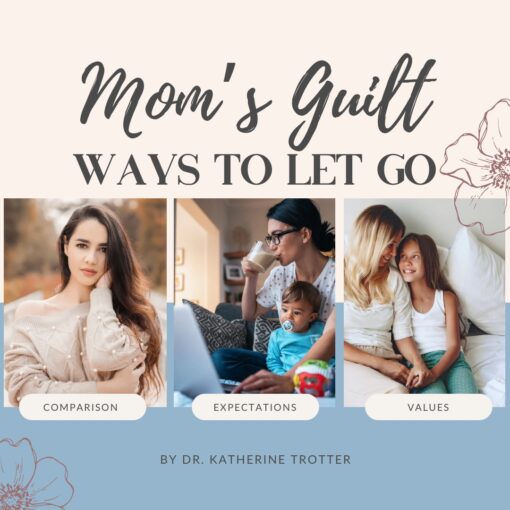 It’s crucial to understand that ‘mom guilt’ is not an isolated feeling but a shared experience among many parents. This term encapsulates the feelings of inadequacy or not meeting the high standards we set for ourselves as parents. These feelings often stem from societal pressures and unrealistic expectations of what it means to be a ‘good parent. ‘
It’s crucial to understand that ‘mom guilt’ is not an isolated feeling but a shared experience among many parents. This term encapsulates the feelings of inadequacy or not meeting the high standards we set for ourselves as parents. These feelings often stem from societal pressures and unrealistic expectations of what it means to be a ‘good parent. ‘
One common trigger of ‘mom guilt’ is the habit of comparing ourselves to other parents. It’s understandable to feel inadequate when we see other parents seemingly doing it all. For instance, you might feel guilty seeing other parents doing crafts or engaging in activities while your child uses screen time. The constant pressure to be a ‘perfect mom’ and the fear of not getting everything right can lead to feelings of guilt, stress, depression, and even rage.
If you find yourself grappling with ‘mom guilt,’ remember that parenting is a journey filled with ups and downs. It’s crucial not to let guilt overshadow this experience. If these negative feelings are becoming overwhelming, consider strategies to alleviate them. By learning to manage your ‘mom guilt,’ you can pave the way for personal growth, live a more meaningful life, and be the best parent you can be.
Are you experiencing mom guilt but unsure if it’s negatively impacting your life? Here are some signs to look out for spending excessive time scrolling through social media, trying to do everything even when overwhelmed, engaging in negative self-talk, experiencing low self-worth, using negative coping methods, feeling anxious, having poor mental health, or experiencing sleep disruptions.
Here are some ways to deal with mom guilt:
1. Reflect on your values. If you’re a parent feeling guilty about certain parenting choices, think about your authentic values. Knowing what you believe in can help you make choices with confidence and reduce feelings of guilt.
2. Reframe your idea of a “good parent.” Comparing yourself to others can trigger guilt and make you feel like you’re not doing things right. Remember that there is no one-size-fits-all approach to parenting, and what works for someone else may not work for you.
3. Letting go of unrealistic expectations can help with guilt about feeding your baby or other aspects of parenting. You can release societal and personal expectations.
Remember, regardless of what others may think or what negative thoughts you may have, sticking to your values is a powerful tool. It can protect your mental well-being and make you feel less guilty, empowering you to make confident parenting choices.
“Each of us is a vital thread in the tapestry of each other. We are woven together for a reason.”
